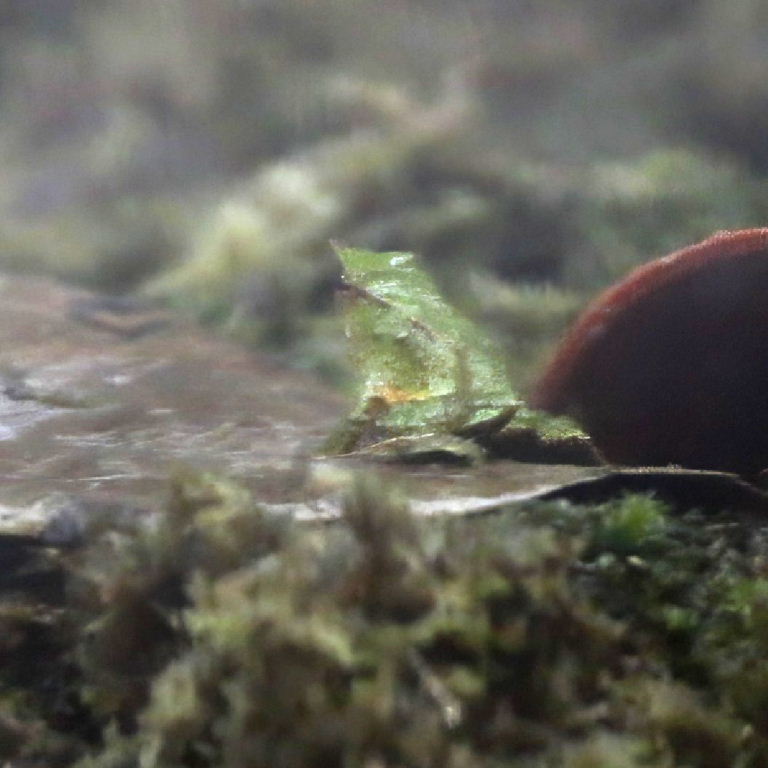Southern Darwin's Frog Rhinoderma darwinii



The tiny and well-camouflaged Southern Darwin's Frog is also called just Darwin's Frog since the Northern or Chile
Darwin's Frog is likely now extinct. Darwin's Frogs (both) are native to Chile (and the Southern to just over the Argentinian border).



Darwin's Frogs and one other species in their family (also endemic to Chile) are evolutionarily unique
as mouth-brooding frogs. The male scoops up the eggs laid by the female and broods them and carries the hatched tadpoles in
his vocal sac until they are ready to swim freely. Males will also foster-brood eggs/tadpoles that are not their own.



Snout to vent length of the adults is up to 3cm (c.1 inch). Females are generally (but not always) brown and
brooding males generally green; other males vary between green and light/dark brown and undersides of both are generally black with
varied white/yellow blotches.
Southern Darwin's Frogs are highly endangered. Initial massive declines were due to habitat loss and degradation.
Subsequent threats include the highly infectious fungal disease Chytridiomycosis, a problem affecting amphibians worldwide, which
has now been found in their populations. A small number of conservation zoos, including London Zoo, are now breeding these specialist
frogs in captivity in the hope of returning a healthy population to the wild when conditions allow.

